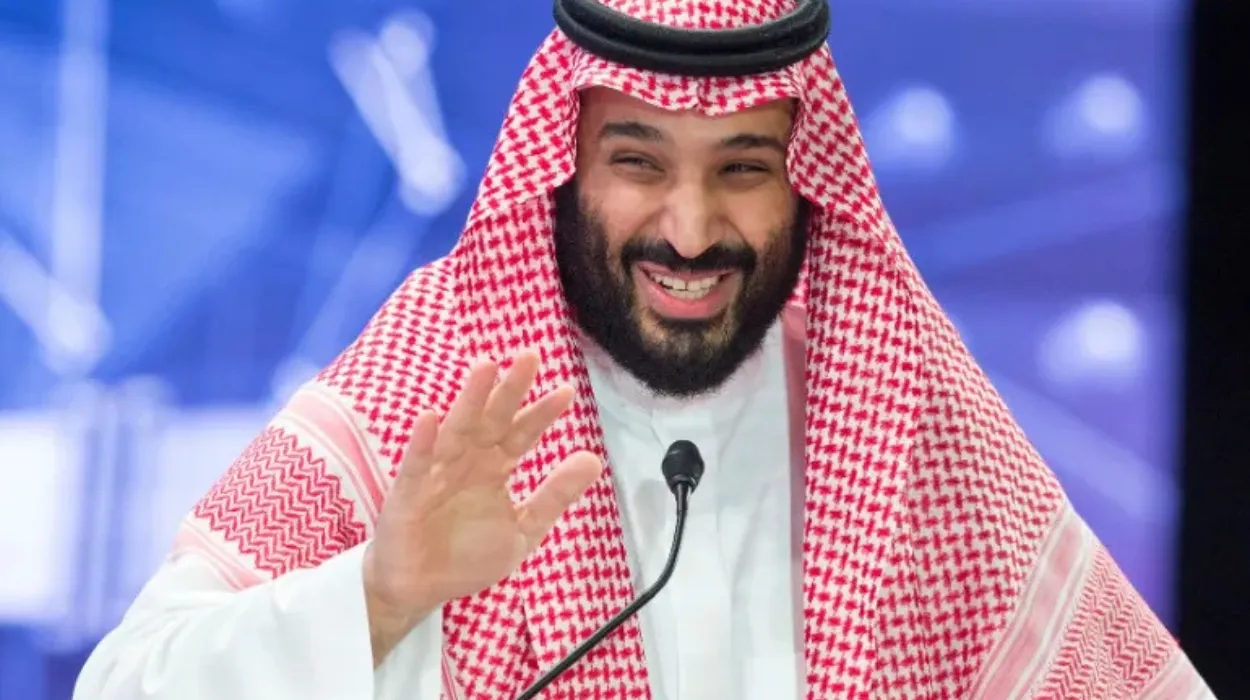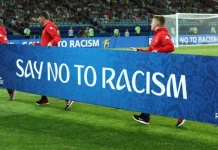Saudi Arabia is one of the most likely candidates to host the 2034 FIFA World Cup. That would be a disaster, however, because this country has a problem of religious intolerance that has been there for decades, while the World Cup represents openness and diversity by nature. After all, Saudi Arabia has tried recently to modernize itself and present a better face to the international community, but religious minorities and other non-Muslim citizens are still considerably persecuted. These concerns challenge if Saudi Arabia is the appropriate host for one of the world’s most diverse sporting events.
Religious Tolerance in Saudi Arabia
Saudi Arabia enforces a strict version of Sunni Islam, popularly known as Wahhabism, which has shaped its policies on religion for several decades. This religion-state system further alienates not only the non-Muslims but other Muslims as well like the Shia Muslims, who, are also discriminated against. The policies of the government, as well as the entire legal system, are based on Islamic law, also abbreviated as Sharia, and public displays of other religions than Islam are strictly forbidden. Out of the estimated 13.5 million expatriates in Saudi Arabia, around 3.5 million are non-Muslims,
Restrictions toward Non-Muslims
Several limitations are imposed on non-Muslim individuals in Saudi Arabia. These constraints can make non-Muslims feel unaccepted or hostile in Saudi society. Such restrictions include:
Ban on Public Worship: Religious worship places, such as churches, synagogues, and temples, of other religions are strictly prohibited in Saudi Arabia. Religious practices are thus done in private by foreigners of other religions in their own homes. Saudi Arabia is ranked as the 9th most difficult country for Christians to live in
Religious conversion laws: The law prohibits Muslims from changing their religion to another, and apostasy that is, leaving the faith is seen as a capital offense.
Religious Books: Importation or publicization of non-Islamic religious books is illegal, whether it be the Bible or Torah, further alienating religious minorities and their denial of resources they would need to live in peace under their faith.
Discrimination Against Shia Muslims
Shia Muslims make up the largest minority in Saudi Arabia, and this is particularly true in the Eastern Province. They still suffer from systemic discrimination, though: they are excluded from holding government jobs and also from good economic opportunities.
The Wahhabi authorities, who are dominant, consider Shia Muslims heretics very often and humiliate them, harass them, and jail them because of practicing their ancestors’ religion. Saudi Arabia’s Shia Muslim minority, which makes up around 10-15% of the population, faces systemic discrimination, including limited access to political, educational, and religious rights
It then throws a shadow over Saudi Arabia’s ability to create a conducive setting for religious harmony in an international event such as the World Cup. It would be difficult for Saudi Arabia to present itself as the face of a melting pot of global diversity while discriminating against a huge segment of its Muslim population at home.
Treatment of Foreign Workers
Millions of foreign workers are in Saudi Arabia, cutting across various religious denominations such as Christians, Hindus, and Buddhists. Most of them live under generally brutal conditions and have limited religious freedom. Though some forms of private religious practice have been granted to foreign workers, they are still largely curtailed and exposed to several abuse factors. Cases of religious persecution alongside rigid Wahhabism that characterize the kingdom make up a not very friendly ground for religious minorities.
Cultural Collision with the Core Values of FIFA
The core values of FIFA have to do with inclusiveness, diversity, and respect for all cultures and religions. The World Cup is not football alone; it is a tool for global unity where diverse people with diverse nationalities, religions, and cultures unite for fun to play or watch football. Saudi’s history of religious intolerance directly contradicts these core values.
Exclusionary Culture for Fans
Fans from different countries, comprising religious minorities, would view Saudi Arabia as unsafe or unwelcome. The country’s laws that punish public expressions of non-Islamic faith may dissuade fans from openly celebrating their cultural and religious identities. A Christian fan carrying a cross or a Hindu fan carrying religious symbols could be harassed or punished under Saudi law.
The World Cup also tends to attract an eclectic audience, and participation by most is a religious celebration of identity and culture. Saudi Arabia’s curbs could shatter this spirit of inclusiveness hitherto synonymous with the tournament.
Potential Diplomatic and Political Fallout
Hosting the World Cup in a country that is known for its religious intolerance will, no doubt, bring the diplomats out of retirement to sort it out. Countries with sizeable non-Muslim populations may find themselves uncomfortable taking their teams and citizens to a country where they are not regarded as worthy of observing their religious practice. Worse still, there might also be calls for boycotts or protests over Saudi Arabia’s hosting of the event, badly hurting both FIFA and the World Cup’s reputation.
Issues of Modernization and Reforms
In the last couple of years, the government of Saudi Arabia has led a different series of reforms under the plan called Vision 2030 by Crown Prince Mohammed bin Salman, which is supposed to help the country modernize and also diversify its economic status. As a result, this has been manifested in some aspects of the openness trend wherein they allow women to drive cars and open doors for tourism amongst many but not in religious freedom which is yet to see vital reforms.
Conclusion
The FIFA World Cup is an opportunity that puts the entire world together. Here again, sports play a significant role in bringing in the values of inclusion, diversity, and respect, hence not something Saudi Arabia can boast about because its record on religious intolerance goes very long back into time.
The fact that Saudi Arabia somehow makes an effort at modernity is overshadowed by its very inability to handle issues of religious freedom and tolerance, which forms a grave question mark on its suitability to host the World Cup. As an organization striving to bring the world together, FIFA needs to introspect whether a country with such long-standing issues of religious intolerance is a good choice to host one of the world’s most inclusive events.













